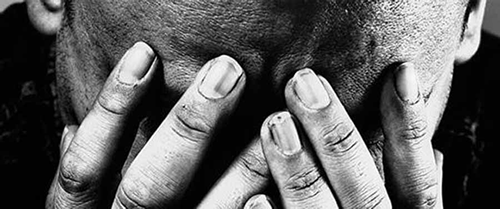By Journalists For Justice
The Institute for International Criminal Investigations (IICI) has developed guidelines for investigating conflict-related sexual and gender-based violence against men and boys to help criminal-justice and human-rights investigators, reporters and monitors around the globe.
The issuance of the guidelines come barely a week after the International Criminal Court (ICC) found former DRC Congo Vice President Jean-Pierre Bemba guilty of crimes against humanity (murder and rape) and three counts of war crimes (murder, rape, and pillaging) committed during the conflict in the Central African Republic (CAR) in 2001-2002. Bemba led the Congolese Liberation Movement (MLC). Reports say more than 1,000 were raped.
For the first time in the Court’s history, sexual violence against men was charged as rape, as opposed to being subsumed under another crime such as torture.
In issuing the guidelines, institute hopes sexual and gender-based violence (SGBV) against men and boys that may amount to war crimes, crimes against humanity and genocide and other egregious violations of international humanitarian, criminal and human-rights law will be fully and properly monitored, documented and investigated.
“It is hoped that such investigations will contribute to efforts to properly acknowledge and report, better understand and prevent, and ensure accountability and redress for conflict-related SGBV against men and boys,” says the institute.
The guidelines have been developed for both criminal-justice and human-rights professionals, ranging from international criminal investigators and prosecutors to national police officers, UN-human-rights officers and members and local human-rights reporters.
The institute says existing accountability-focused egregious-violation investigation frameworks, guidance, training resources and the like do not address Conflict Related SGBV (CRSGB) against men and boys comprehensively and in detail.
“That is unsurprising, seeing that the world’s recognition of the pervasiveness, scale, forms and seriousness of CRSGBV against men and boys, though growing, remains sensitive and controversial. The varied nature and impacts, and the prevalence of such violations, are not yet widely studied and understood.
The guidelines are designed to complement existing relevant investigation frameworks and practices, including those that currently focus on CRSGBV against women and girls or children.
“Egregious-violation investigation agencies and organisations, and individual investigators
whose investigations frameworks and practices may not fully integrate and be attentive to CRSGBV against men and boys, can consider, modify and use these guidelines as they see fit,” says the institute.
The 24-paged policy guide recommends that guidance concerning awareness of and sensitivity to CRSGBV against men and boys be systematically integrated in all facets and stages of egregious-violation investigations – and in associated institutional, strategic, policy, procedural and legal frameworks.
“Unless this is done, such SGBV, just like CRSGBV against women, girls and others, may not be spotted and properly investigated, documented and addressed,” it says.
With that recommendation, IICI says it does not in any way suggest any reduction in the attention given to CRSGBV against women and girls. On the contrary, it calls for increased attention on the diverse ways in which CRSGBV targets and impacts women, men, girls, boys and other sexual and gender identities. It also demands analyses of the different ways in which gender norms and gender identities underpin CRSGBV against all those categories of people.
Here are the guidelines:
Read on Rape as a Weapon of War on Men:







